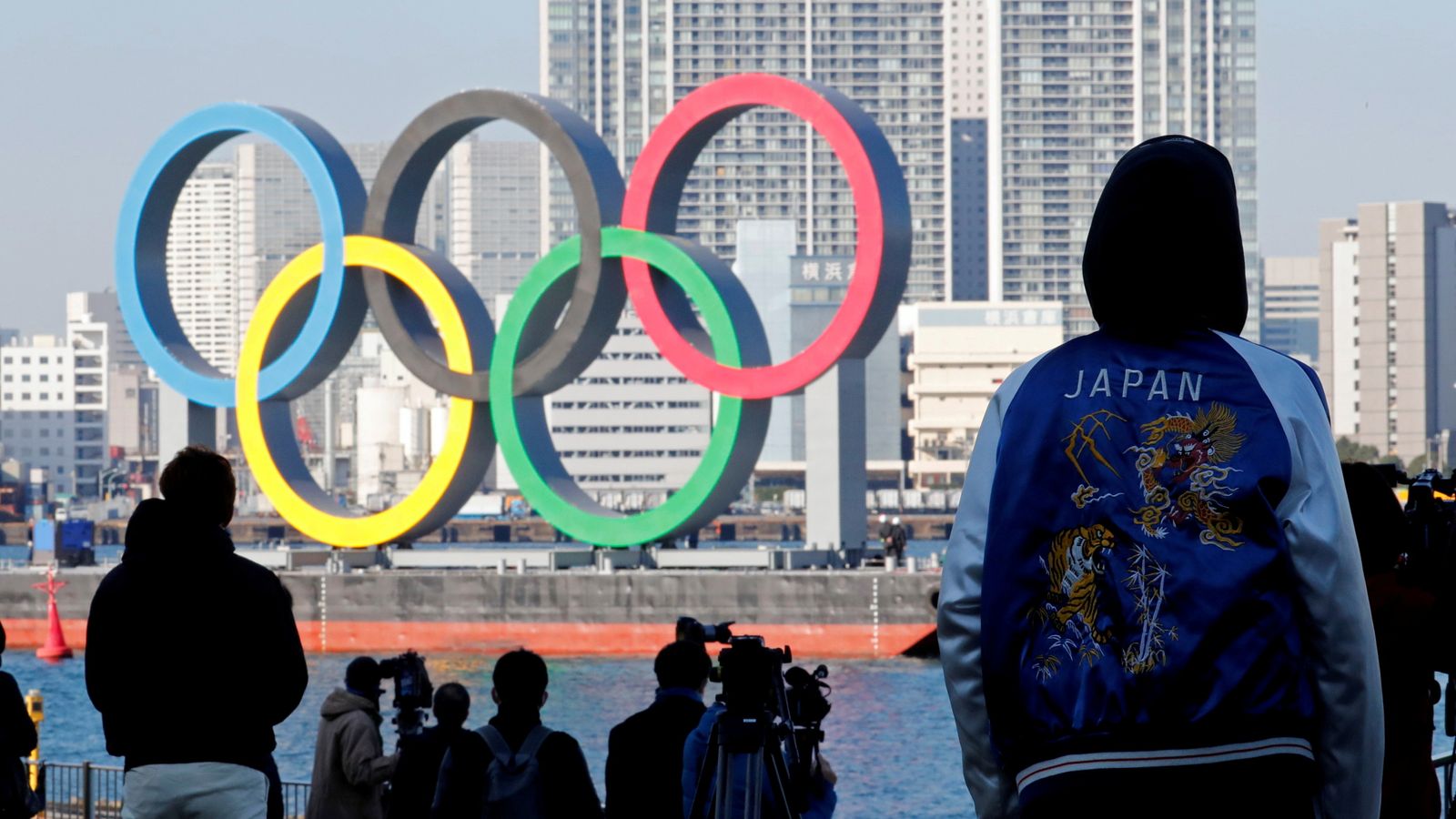Tokyo has asked for permission to use emergency measures to combat a surge in a rapidly spreading and more contagious coronavirus variant, three months before the Olympic Games.
Yuriko Koike, the governor of the city which only came out of a state of emergency on 21 March, said she has asked the government to allow her to make use of a new virus prevention law passed in February.
Under the plan, officials can penalise business owners who fail to comply and compensate those who do.
Live COVID news updates as advice on Oxford jab changes
The latest surge started in western Japan, including Osaka, which has declared a medical emergency after its hospitals became overwhelmed with new cases and the number of daily deaths hit a record 878.
Hirofumi Yoshimura, governor of Japan’s third-largest city, 311 miles (502km) west of Tokyo, said more than 70% of hospital beds have been occupied, a threshold for a local medical alert.
Mr Yoshimura asked that the Olympic torch relay, planned for Tuesday and Wednesday, be taken away from public roads and into a park instead.
Tokyo reported 545 cases on Thursday, the highest since early February and infections have also surged elsewhere in the country.
Ms Koike said she is alarmed by the rapid spread of the new variants, especially one initially found in Britain, adding “it would be a matter of time before Tokyo faces a situation similar to Osaka”.
She said timing and details of the new measures, including shorter hours for restaurants and bars, will be decided later, possibly on Friday.
With Japan’s vaccination drive still at an early stage, the surge may cause further cancellations of Olympics-related events.
Inoculations started in mid-February with medical workers, but still account for less than 1% of the population of 126 million.
Vaccinations of elderly people are to start next week and the rest are likely to have to wait until around July.
The Olympic Games and Paralympic Games which follows, are scheduled to start on 23 July, without foreign spectators, for fear of worsening the COVID situation in the country.
While infection rates have been relatively low in Japan compared with the United States and many European countries, it has been hit hard by the third wave of the pandemic, which forced Tokyo to adopt a state of emergency.
More than 9,200 people have died from the disease there, from a total of almost 500,000 cases, according to the latest government figures.
In January, Japan was forced to deny the event would be cancelled.
On Tuesday, North Korea said it was pulling out of the games over COVID fears.






















